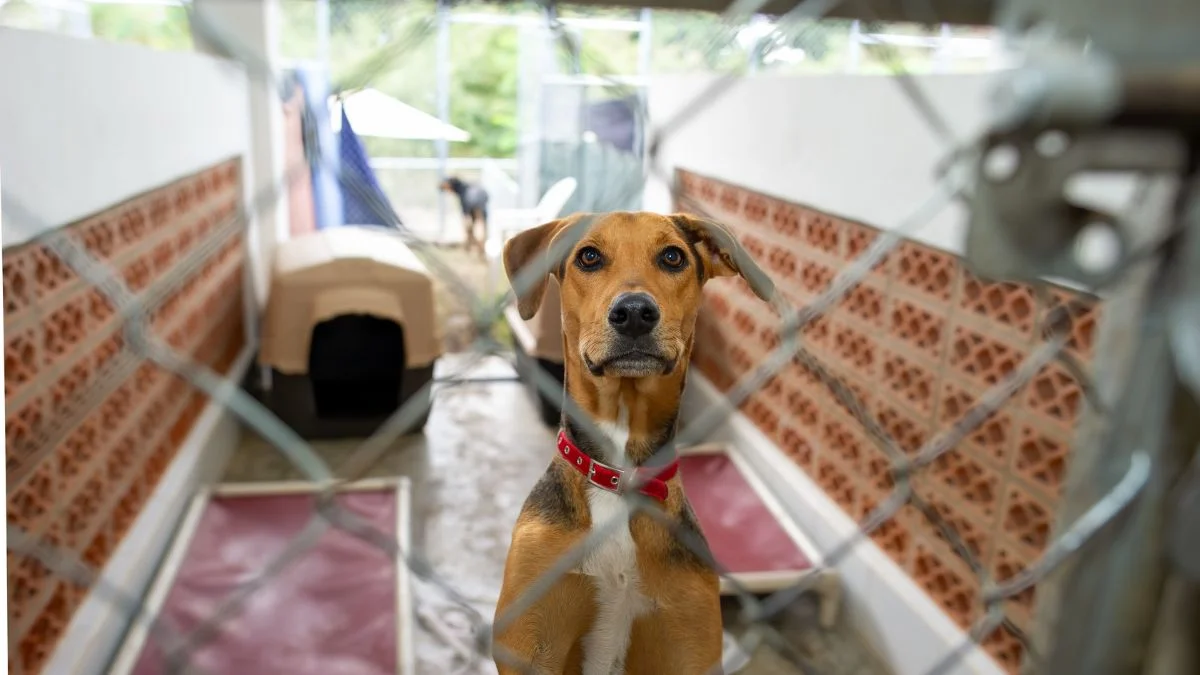The journey typically begins with research. You’ll want to identify local shelters or rescue organizations that align with your values and can accommodate your needs. Many organizations have websites with profiles of available dogs, including photos, descriptions, and temperament assessments, allowing you to narrow down your options before visiting in person.
Assessing Your Lifestyle and Home Environment
Before welcoming a rescue dog into your life, it’s crucial to take a moment for self-reflection and assessment of your lifestyle and home environment. Dogs are not just pets; they are living beings with their own needs, personalities, and quirks. The first step in ensuring a harmonious relationship is to consider how a dog will fit into your daily routine and living space.
Start by evaluating your daily schedule. Are you often away from home due to work, travel, or social commitments? If so, it’s important to recognize that some breeds require more companionship and engagement than others. High-energy dogs may struggle with long hours alone, leading to stress and behavioral issues. On the flip side, if you have a flexible job or work from home, you might be well-suited for a dog that thrives on social interaction and playtime.
Next, take a close look at your home environment. Is your living space large enough to accommodate a dog? Consider factors such as the size of your yard, proximity to parks, and the overall safety of your neighborhood. An active dog will appreciate ample space to roam and explore, while smaller breeds may be perfectly content in a cozy apartment. Don’t forget to assess your home for hazards—sharp objects, electrical cords, and toxic plants should be secured to create a safe and welcoming environment for your new companion.
Additionally, think about the members of your household. Do you have young children or other pets? It’s essential to choose a dog that fits well with your family dynamic. Some breeds are more tolerant and adaptable to children, while others may prefer a quieter environment. Involving everyone in the decision-making process can help ensure that your new furry friend is a good match for everyone involved.
Ultimately, understanding your lifestyle and home environment will guide you in selecting a rescue dog that complements your life. Taking the time to assess these factors will not only lead to a more successful adoption but will also lay the groundwork for a joyful and fulfilling relationship with your new lifelong companion.
The Dog Application Process
Once you’ve found a potential match, the next step is to fill out an adoption application. This form often requires you to provide information about your living situation, work schedule, and experience with pets. Some organizations may conduct a home visit or interview to ensure you’re a suitable match for the dog’s needs. This may seem daunting, but remember: it’s designed to protect the welfare of the animals and to ensure they are placed in loving homes.
After your application is approved, you’ll have the opportunity to meet the dog, often in a designated area at the shelter. This is your chance to gauge the dog’s personality and see if the two of you click. Spend time interacting with them—play, walk, and observe their behavior. Look for cues that indicate they’re comfortable with you, such as wagging tails, relaxed body language, and playful antics.
If the meet-and-greet goes well, you might participate in a short trial period where you can take the dog home for a few days to see how they fit into your lifestyle. This is a crucial phase for both you and the dog, as it allows you to assess their adaptability to your home environment and routines.
Once you’ve made the decision to adopt, you’ll finalize the paperwork. Many shelters will require an adoption fee, which often covers vaccinations, spaying/neutering, and sometimes even initial vet visits. This fee is an important aspect of the process, as it helps the shelter continue its mission of rescuing and caring for dogs in need.
Finally, after completing the paperwork, you’ll receive guidance on how to care for your new companion. Many organizations provide resources on training, nutrition, and health care, which can be invaluable as you embark on this new adventure together.
Adopting a rescue dog is not just about rescuing an animal; it’s about forming a lifelong bond. By being informed and prepared for the adoption process, you set the stage for a successful relationship that brings joy and companionship for many years to come.
Initial Health Checks and Veterinary Care
When bringing a rescue dog into your home, one of the most crucial steps is ensuring their health and well-being right from the start. Initial health checks and veterinary care are not just important for your new furry friend, but they also set the foundation for a happy and healthy companionship.
As soon as you welcome your rescue dog, schedule a visit to the veterinarian. This initial check-up is essential for assessing your dog’s overall health, identifying any immediate medical needs, and establishing a vaccination schedule. Many rescue dogs come with an unknown medical history, which means they could be at risk for certain health issues. A thorough examination can uncover potential concerns such as parasites, skin infections, or dental problems that may have been overlooked during the rescue process.
In addition to the physical examination, this first visit is a great opportunity to discuss your dog’s diet and nutrition. Your vet can recommend the best food options based on your dog’s breed, age, and specific health needs. Proper nutrition plays a pivotal role in your dog’s long-term health and can also influence their behavior.
Moreover, don’t forget to discuss spaying or neutering if it hasn’t already been done. This procedure not only helps control the pet population but can also lead to a range of health and behavioral benefits for your dog.
Establishing a good rapport with a veterinarian you trust is key. They’ll be your partner in your dog’s health journey, helping you navigate vaccinations, preventive care, and any health issues that may arise down the line.
Lastly, keep in mind that your rescue dog may require additional time and patience as they adjust to their new environment. Some may exhibit fear or anxiety due to past trauma, which can impact their health. Regular veterinary visits and open communication with your vet can ensure you’re addressing any behavioral issues early on, promoting a smoother transition into your home.
By prioritizing initial health checks and ongoing veterinary care, you’re not just adopting a dog; you’re committing to a lifelong relationship built on trust, understanding, and love. This essential step is one of the best ways to demonstrate to your new companion that they are safe, valued, and cared for in their forever home.


